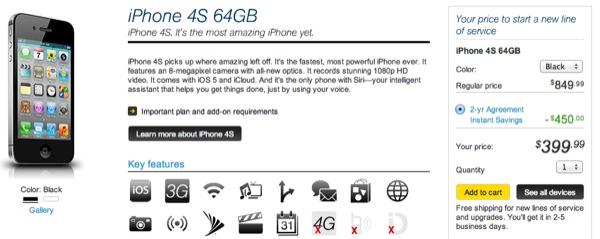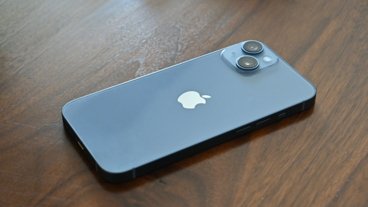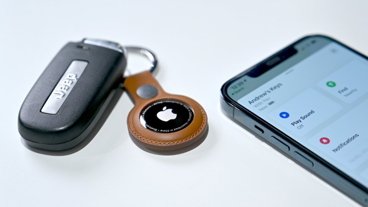Sprint committed to $15.5B iPhone contract in 2011, expects to buy more
In the Monday filing of Sprint's 10-K report for the 2011 fiscal year, it was revealed that the company is betting on subscriber dues to offset an expected 2012 deficit from the agreement with Apple, which called for a minimum order of around $15.5 billion worth of high-subsidy iPhones, according to Barron's.
During 2011, the Company entered into a purchase commitment with Apple, Inc. to purchase a minimum number of smartphones, which on average, is expected to carry a higher subsidy per unit than other smartphones we sell.
Sprint's plan is to take a hit in profits early by purchasing and subsidizing iPhones, then reap the benefits yielded from subscribers with lucrative smartphone contracts. There is evidence that the strategy may be working, as the carrier sold 1.8 million iPhones over the holiday quarter, 40 percent of which were to new subscribers. In contrast, iPhone activations at the top two U.S. carriers Verizon and AT&T stood at 4.2 million and 7.6 million, respectively.
Carriers pay heavy subsidies to carry the iPhone, and Sprint is currently paying $450 for every unit sold with a two-year contract. On top of what the company calls an "instant savings," Sprint is the only carrier in the U.S. to offer unlimited data for any iPhone model.
Sprint's iPhone 4S contract agreement shows a hefty $450 subsidy. | Source: Sprint
The nation's third-largest mobile carrier was the last of the "big three" networks to get the iPhone, and only started selling the device in October, 2011 when the newest iPhone 4S was debuted. Combined launch-day sales of the iPhone 4S and last-generation iPhone 4 helped set a new one-day record for Sprint, and the product line continues to draw in new customers.
We expect to incur expenses to attract new subscribers, improve subscriber retention and reduce churn, but there can be no assurance that our efforts will result in new subscribers or a lower rate of subscriber churn.
Previous reports called the iPhone agreement a "bet the company" move, and estimated that the telecom would have to put up $20 billion for rights to sell the popular Apple handset.
Apple's smartphone line is seen as a major sales catalyst for carriers, and Sprint CEO Dan Hesse was quoted as saying that not having the iPhone was the "number one reason customers churn" from his company to other mobile carriers.
Other carrier agree, as T-Mobile recently attributed the loss of some 700,000 subscribers to the iPhone, saying that those who switched networks did so primarily to buy an iPhone 4S. T-Mobile is the only major U.S. carrier that does not offer any model of Apple's handset.
 Mikey Campbell
Mikey Campbell











 William Gallagher
William Gallagher
 Andrew Orr
Andrew Orr
 Sponsored Content
Sponsored Content
 Malcolm Owen
Malcolm Owen



 Mike Wuerthele
Mike Wuerthele







